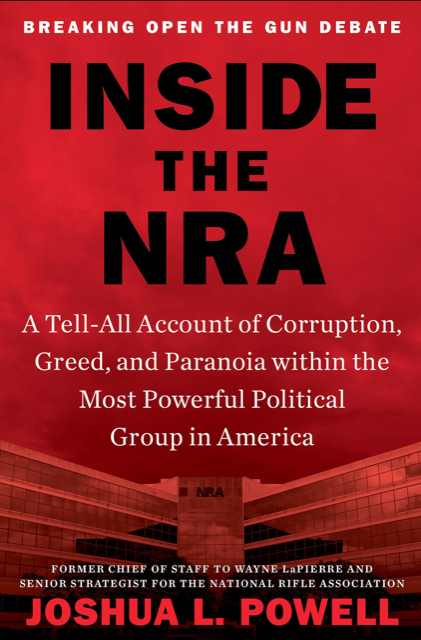An Alabama bankruptcy judge’s ruling on Tuesday has the families of children killed in the Sandy Hook Elementary School shooting upset. That’s when U.S. Bankruptcy Court of Northern Alabama Judge Clifton Jessup, Jr. announced he would not be modifying a timeline for Remington to begin auctioning off pieces of its again bankrupt business.
Remington’s bankruptcy plan calls for liquidations. The timeline has them beginning as early as September 17.
The Sandy Hook families requested a hearing, seeking a 45-day delay. In that hearing, an attorney for the Sandy Hook families told the judge, “The families have great concerns about the speed, the breakneck speed that the debtors are setting up for this sale. There won’t be, there simply can’t be, a full and fair process unless this high-speed train that we’re on slows down.”
Saying it appeared the families would likely use the 45-day delay to “continue their discovery in the Connecticut case,”Judge Jessup denied their request.
The families are suing Remington in Connecticut Superior Court, alleging the company should never have sold the Bushmaster rifle used in the shooting to “members of the public.” The suit contends the company essentially lured at-risk youths to the guns by placing them in violent video games.
“That,” Jessup said, “is a problem for the Alabama bankruptcy court.”
Remington’s latest bankruptcy filing lists assets and liabilities between $100 and $500 million - spread among between 1,000 and 5,000 creditors. The Madison, North Carolina, based company’s filing at a time when the rest of the industry appears to be booming due to the financial, political and societal upheavals around the country surprised many.
Other companies, however, do not have Remington’s debt, nor legal burdens.
Despite the normal protections afforded a debtor, the Sandy Hook families appear determined to continue their claim.
Speaking of legal battles…if you were one of four named defendants in a lawsuit that alleges you used the coffers of a not-for-profit organization for your own benefit, what would you do?
Standard legal advice would be “clam up” and wait until you’re in court to speak about anything.
But the expected is always unexpected when it comes to the formerly private, now very public, goings-on at the National Rifle Association.
Despite having more than five million members around the country, all attention seems now to be fixed on the Virginia headquarters and the current- and former - senior leadership.
Since New York Attorney General Letitia James’ announcement of a lawsuit seeking to dissolve the 149-year old organization due to the alleged financial shenanigans of its top officials, most eyes have been fixed on Wayne LaPierre, Wilson “Woody” Phillips, Josh Frazier and Joshua Powell.
That’s the quartet accused of “abusing their positions as fiduciaries to the NRA” to obtain, or conceal, “millions of dollars in personal benefits in the form of undisclosed, excessive compensation.”
No comments have been forthcoming from Phillips or Frazier. And Mr. LaPierre exercised his usual attack strategy, accusing James of a long-expected, baseless attack on the NRA, then told her her to “bring it on.”

Powell, however, is singing quite a different tune - loudly.
He’s preparing to release a “tell-all” book entitled Inside the NRA: A Tell-All Account of Corruption, Greed and Paranoia Within the Most Powerful Political Group in America.
The samples I’ve read don’t shine a positive light on anyone.
Like the NRA’s federal lawsuit in response to the New York action, attacks on Powell, his credibility and his book rolled out almost simultaneously with word “leaked to the media" his book was forthcoming from a division of Hatchett Book Group.
A named senior member of former NRA vendor Ackerman McQueen official pointed out that Powell was no stranger to shady dealings. NRA President Carolyn Meadows called the work “fiction”.
Increasingly, however, the legal battles and associated name-calling is looking more like a nasty divorce case than an well-run organization defending itself from political attacks.
Allegations of tens of millions of dollars allegedly siphoned off as salaries, benefits and unaccounted expenses by managers isn’t something the five-million plus members should simply dismiss as “just another baseless attack”. Especially since the assurances the attacks are “baseless” come from the man characterized in the charges as the ultimate operator of that siphon.
Yet, as the New York Attorney General’s case moves into the courtroom, there’s absolutely no assurance that despite whatever evidence can be produced documenting wrongdoing, self-dealing and possible criminal activity, a sufficient case could be made to dissolve the NRA. The NRA is closing in on a 155th anniversary, the allegations refer to improprieties over the last few years.
And, allegations are exactly that. They don’t prove wrongdoing, they only claim it. And allegations are offered without proof. Only with proof do they justify action.
It would require an immense amount of irrefutable evidence of wrongdoing to justify the dissolution of an organization based solely on the bad conduct of its leadership over a relatively brief span of the organization’s history. And there’s the matter of disenfranchising five million members over the alleged misconduct of a greedy few, after all, the simple matter of their paying their dues has the potential to put a minimum of $300 million back into what will undoubtedly be better-guarded coffers, whatever the legal outcome.
In law, however, going for the most extreme option by prosecutors doesn’t mean an all-or-nothing outcome. It allows room for dealmaking or amendment to a more achievable goal.
Despite the tough standard facing the request for dissolution, there’s no denying that proving bad conduct by those charged with the well-being and legal operation of the organization would be sufficient to allow the Attorney General to assert a lesser option against the NRA. New York law does not allow that sort of abuse to pass. Those possible options include dismissal of senior officials, the entire 76-member Board of Directors, or both.
We’ll keep you posted.
—Jim Shepherd